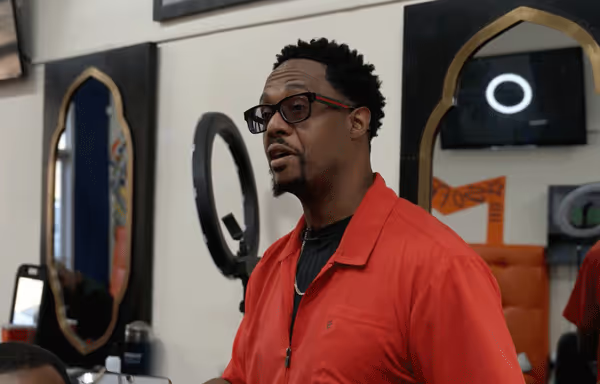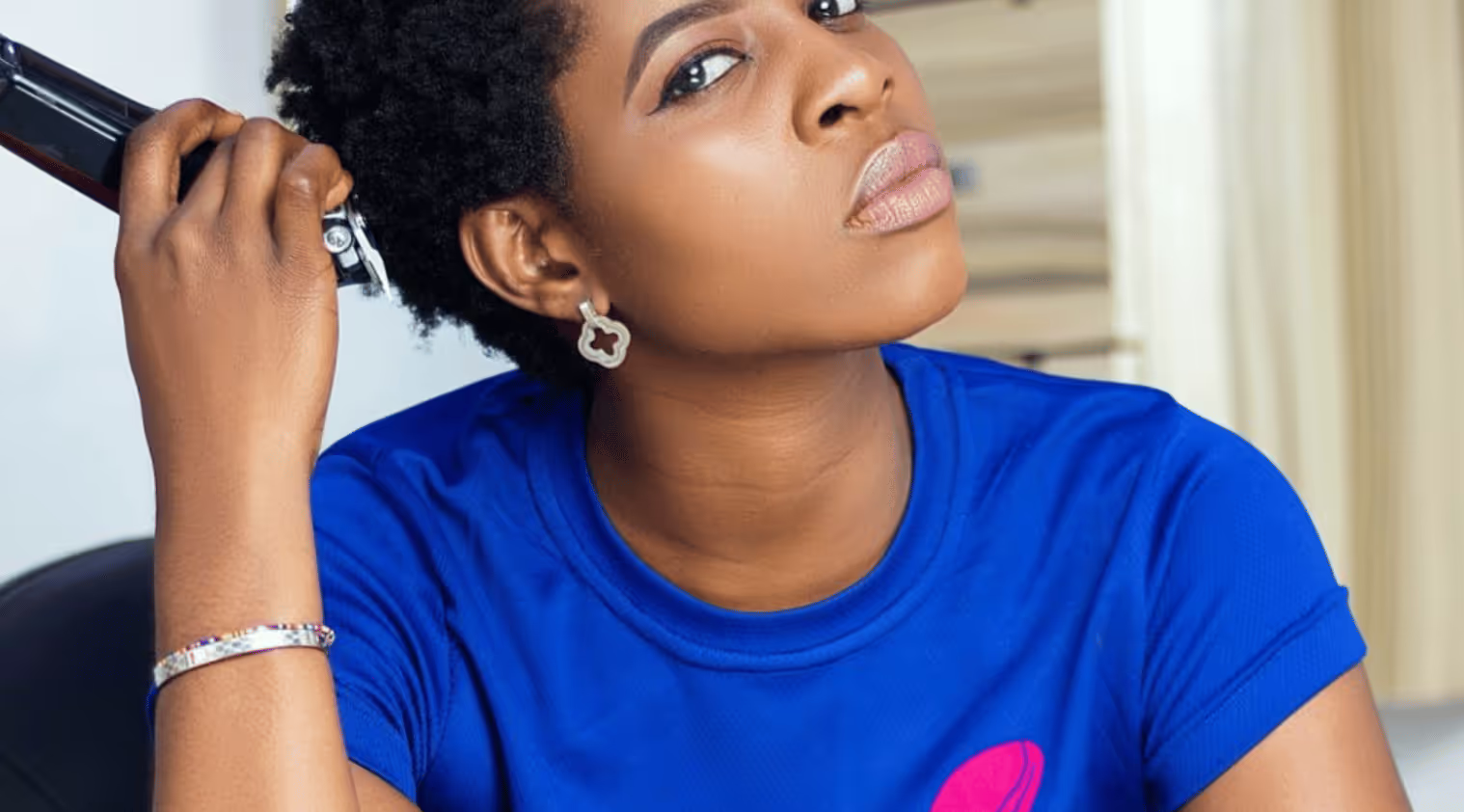Voices of Women In Barbering
Undaunted. Outspoken. Trailblazers. Trendsetters. These are just some of the words that come to mind when we think of women and the role they play in the barbershop game. Here at theCut, modernizing the barbershop experience goes beyond technology to dispelling stereotypes and outmoded thinking that hinders the industry.
Khane Kutzwell, Kiah Lyles, Oyinlola Isiaka, and Onyinye Obasi are just some of the women who are blazing trails as barbers and busting down toxic ideologies that have had a hold on barbering for entirely too long.
Khane Kutzwell of Camera Ready Kutz, Brooklyn, NY
From the New York Times Female-Owned Barbershops Undo Toxic Masculinity One Cut at a Time
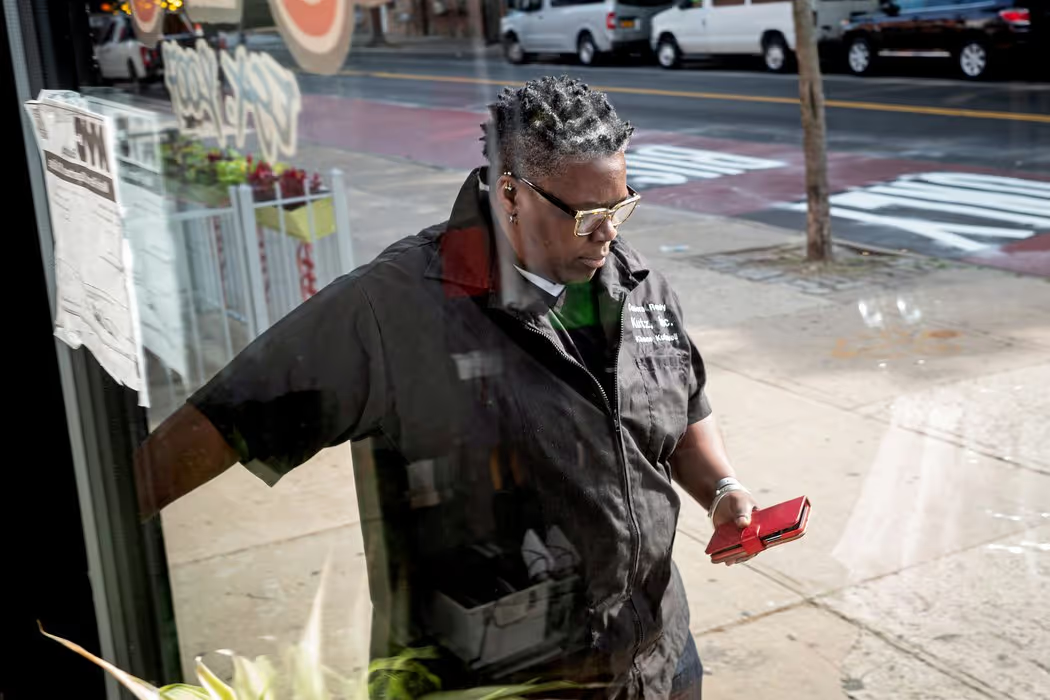
Hundreds of clients have sat in Khane Kutzwell’s barber chair. But after a decade, only one motivates her to keep cutting.
A 5-year-old girl wanted a buzz cut with the Batman symbol carved in the back. Her parents drove 190 miles for it.
Kutzwell lived in Brooklyn and the girl and her family lived in Baltimore, where almost every barber refused the kindergartner service, except for one barber who agreed to do it if they came in after the shop closed.
“I just didn’t think that was right,” said Kutzwell, who prefers not to use a courtesy title. “They had to travel all that way just to get a simple haircut.”
But that simple haircut proved profound and has inspired her every cut since.
“When I gave the little girl the mirror — the look on her face was — I’ve never in all my years of barbering seen and still haven’t seen a face like that. She lit up,” Kutzwell said. “Not because of my cut, but because somebody did what she wanted. In that moment, I was like, O.K. This is why I’m doing what I do.”
What she does, she said, is sell self-esteem.
As a female barbershop owner in a male-dominated industry, Kutzwell—her government name is Cindy Morris—finds self-esteem especially necessary for her fleet of female barbers and unique clientele.
Read more of Khane’s story here
Kiah Lyles, owner of “Klassy Kutz”, Snellville, Georgia
From Rolling Out ‘That Lady Barber’: Kiah Lyles a Black female entrepreneur
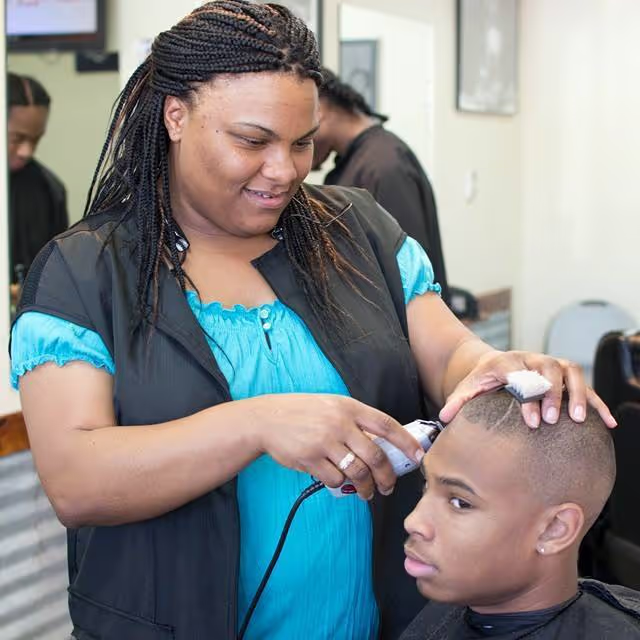
[As a barber] my mission is to transform a person’s total outlook on life, through a haircut, by “Creating a Celebrity.”
I moved to Atlanta in December 2006 and decided to enroll in school for my master barber’s license. I have been around the hair industry all of my life. For the past 51 years, my mom, Joan Lyles, has been and still is a licensed cosmetologist in Mississippi. Many years ago, a close childhood friend introduced me to another side of the hair industry, barbering, and I’ve been interested in it ever since.
She offers the following advice to aspiring barbers:
- Being a barber requires patience. Nothing happens overnight.
- You are your own boss. You are responsible for building your own business/clientele. Always stay motivated, passionate, and ambitious.
- Never chase money. Continue to perfect your skills on a daily basis and the money will come to you. Stay humble in the process.
Read more of Ms. Lyles’ story here
Oyinlola Isiaka, a documentarian shines her light on intersectionality in the barbershop
From Blavity In The Cut: The Complex Relationship Between Black Women And The Barbershop
The big chop/ natural hair movement has prompted cohorts of Black women to get their hair service at barbershops instead of at hair salons. When a woman is in this space, she is usually the only one and made to feel like an outsider. The role that Black women play within the barbershop is an overlooked and stigmatized subject.
While many female barbers recall the first time a man refused to sit in their chair or when a man questioned their skills/ abilities simply because of their gender. And let’s not forget, the perpetuated stereotypes of female barbers. There is generally an assumption that most female barbers are actually more masculine-presenting because it is believed that in order to operate in a male-dominated space, a woman must be hyper-masculine.
Black women going to the barbershop is by no means a new phenomenon. It is a subculture that has always existed. Many Black women choose to go to the barbershop because of cost. It is often cheaper than the hair salon because of gender markup.
Read more of Oyisaka’s story here
Onyinye Obasi shares the joys and challenges of being a female barber in Nigeria
From Premium Times How I manage male customers as female barber
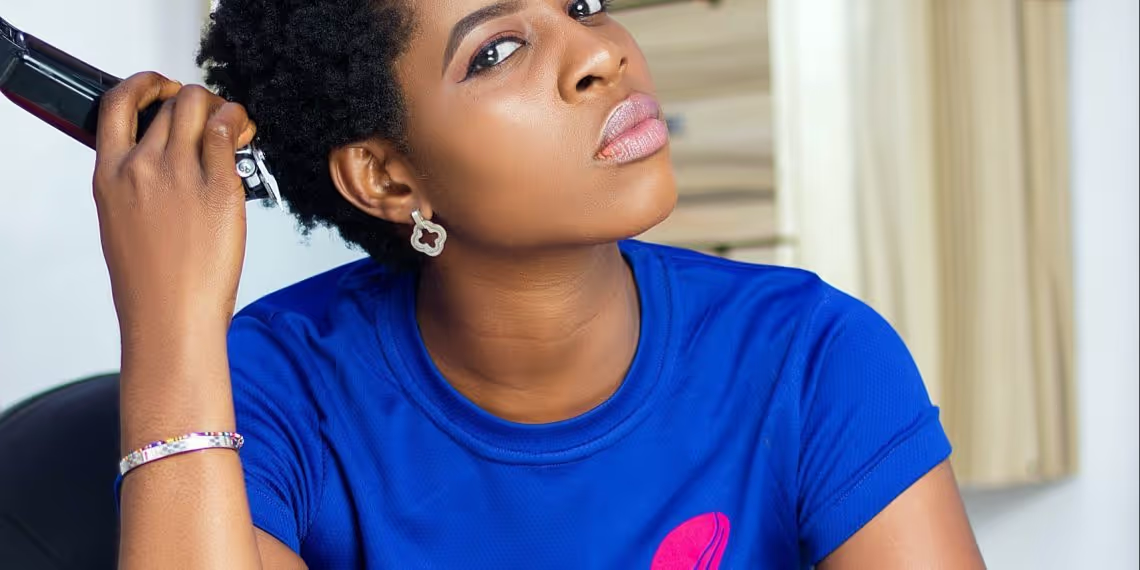
I cut people’s hair for a living but what I sell is good looks and self-confidence. The fact that I help an individual walk out of their low self-esteem to a full blown confidence gives me joy.
I honestly didn’t have an intention to learn barbing. I wanted to learn a skill because my mum insisted that I learn a skill irrespective of my first degree. So after my National Youth Service, I wanted to learn a skill just to please my mum.
However, I picked a skill that can still spark my interest while learning and boom, the idea of barbing came in.
The fact that I have never heard or seen a female barber then when I learnt in 2009 sparked my interest.
After learning in 2010, I didn’t have a job then so I volunteered my services for free In the barbershop where I learnt until I got a job months later.
When I first started the prejudice was so high. I get a blank ‘No, I’m so sorry you can’t cut my hair’ and they request a male barber.
It’s so painful then because they could trust a male barber for the first time and in my case, it was concluded that I don’t know how to barb just because I’m a woman.
Now it’s so fascinating seeing me cut their hair for the first time and when I’m done they get stuck with the value I offer.
Read more of Onyinye Obasi’s story here

